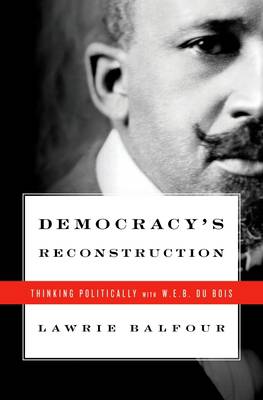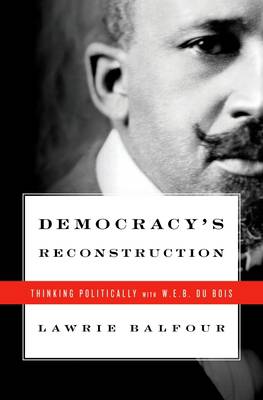
- Afhalen na 1 uur in een winkel met voorraad
- Gratis thuislevering in België vanaf € 30
- Ruim aanbod met 7 miljoen producten
- Afhalen na 1 uur in een winkel met voorraad
- Gratis thuislevering in België vanaf € 30
- Ruim aanbod met 7 miljoen producten
Zoeken
€ 143,45
+ 286 punten
Omschrijving
In Democracy's Reconstruction, the latest addition to Cathy Cohen and Fredrick Harris's Transgressing Boundaries series, noted political theorist Lawrie Balfour challenges a longstanding tendency in political theory: the disciplinary division that separates political theory proper from the study of black politics. Political theory rarely engages with black political thinkers, despite the fact that the problem of racial inequality is central to the entire enterprise of American political theory. To address this lacuna, she focuses on the political thought of W.E.B. Du Bois, particularly his longstanding concern with the relationship between slavery's legacy and the prospects for democracy in the era he lived in. Balfour utilizes Du Bois as an intellectual resource, applying his method of addressing contemporary problems via the historical prism of slavery to address some of the fundamental racial divides and inequalities in contemporary America. By establishing his theoretical method to study these historical connections, she positions Du Bois's work in the political theory canon--similar to the status it already has in history, sociology, philosophy, and literature.
Specificaties
Betrokkenen
- Auteur(s):
- Uitgeverij:
Inhoud
- Aantal bladzijden:
- 216
- Taal:
- Engels
- Reeks:
Eigenschappen
- Productcode (EAN):
- 9780195377293
- Verschijningsdatum:
- 16/03/2011
- Uitvoering:
- Hardcover
- Formaat:
- Ongenaaid / garenloos gebonden
- Afmetingen:
- 157 mm x 236 mm
- Gewicht:
- 417 g

Alleen bij Standaard Boekhandel
+ 286 punten op je klantenkaart van Standaard Boekhandel
Beoordelingen
We publiceren alleen reviews die voldoen aan de voorwaarden voor reviews. Bekijk onze voorwaarden voor reviews.











